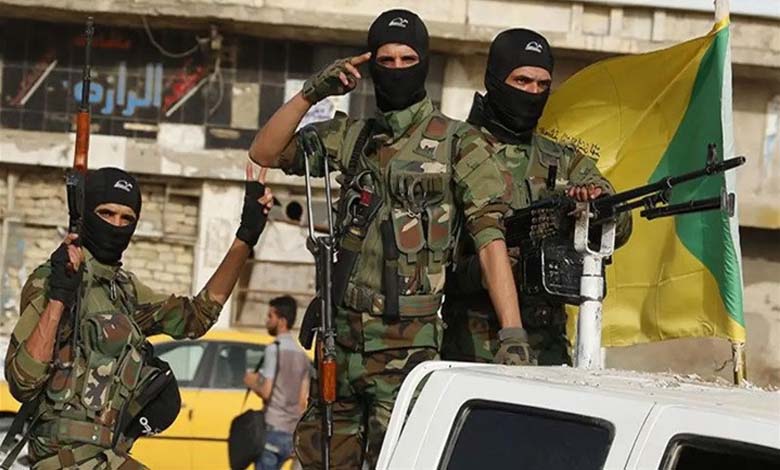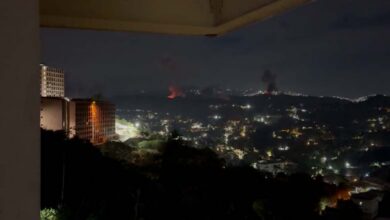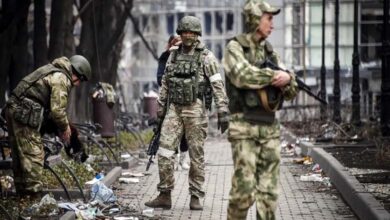Meager Salaries and Stark Discrimination: Why Are Syrians Defecting from Iranian Militias?

Within the ranks of Iranian militias operating in eastern Syria, a new crisis unfolds daily, threatening their internal structure and challenging their leadership with potential collapse. Defections and unrest among Syrian fighters aligned with these militias are escalating, driven by factors such as unfair salary distribution, discrimination between local and foreign fighters, and the fear of increasing military strikes.
-
Israeli raid in Syria targets a house where members of Iranian militias reside
-
‘Rezma’: New iranian militias supporting the regime… Get to know them
Field sources confirmed that divisions have reached unprecedented levels, with frequent desertions from Iranian camps to areas controlled by the Syrian Democratic Forces (SDF). This reflects a lack of trust between local fighters and commanders of the Iranian Revolutionary Guard Corps (IRGC). The funding shortage and low morale among Syrian fighters reveal a deep crisis in the relationship between Tehran and its local allies, coinciding with growing regional tensions, particularly following intensified Israeli and U.S. attacks on militia positions.
-
The Revolutionary Guard reviews the plans for the deployment of Iranian militias in Iraq… What’s the connection with Gaza?
-
Iranian militias in Syria prepare for new US strikes… Details
Defections Threaten Iranian Influence
An informed source disclosed that the city of Al-Bukamal in eastern Syria has witnessed increasing defections among local members of Iranian militias. The latest incident involved 10 fighters from the IRGC-affiliated “47th Regiment,” who fled to SDF-controlled areas.
The source stated that the primary reason for these defections is fear of repeated strikes by U.S. and Israeli forces, along with poor treatment and glaring salary disparities, with local fighters earning significantly less than their foreign counterparts.
-
The Terrorism Monitor reveals the movements of Iranian militias to spread terrorism and murder in the Middle East
-
Pro-Iranian militias back ISIS in Iraq
Rising Tensions in Deir ez-Zor
In a related context, a former fighter, speaking anonymously, highlighted that one of the main reasons for distancing himself from Tehran’s militias was the unequal treatment of Syrians compared to foreign fighters. The latter receive salaries of up to $700 per month, while Syrian fighters earn no more than $100.
This discriminatory treatment has fueled growing discontent among local fighters, who are increasingly seeking opportunities to defect.
-
Iranian Militias founded Rocket Launchpads West of Euphrates in Syria
-
Arrests and Kidnappings… Houthi Militias Continue Their Crimes
The source added that the city of Mayadin, located in Deir ez-Zor province, recently became a hotspot for tensions between local and Iranian commanders. A tense meeting within an IRGC base saw both sides exchange accusations over responsibility for strikes by the international coalition and Israel.
Syrian commanders reportedly threatened to withdraw if the current conditions persisted, including halted payments and scarce military supplies.
-
Iranian-Houthi Meeting: Tehran Prepares Its Response to the ‘Expected’ Israeli Attack
-
Iraqi Militias Threaten Devastating Response if Israel Assassinates al-Sistani
Recruitment of Tribal Members
Since 2017, Iran has employed various strategies to recruit Syrian fighters, focusing on tribal members through local leaders and exploiting economic hardships and security concerns.
The militias offered incentives such as security cards and financial rewards to attract youth. However, this strategy has faltered under recent challenges, including intensified Israeli and U.S. strikes and growing frustration among the recruited fighters.
Finally, escalating tensions between Iran and Israel, particularly after the Gaza war, have driven recruits away from Iranian militias, as U.S. and Israeli strikes on militia positions have put local fighters in direct danger.
-
Iranian Missiles on Israel: Launch and Interception Costs
-
How did Iranian missiles breach Israel’s “Dome”? 4 Reasons












